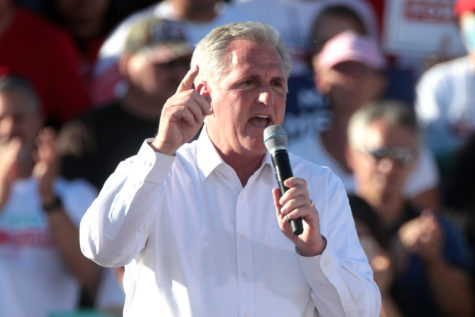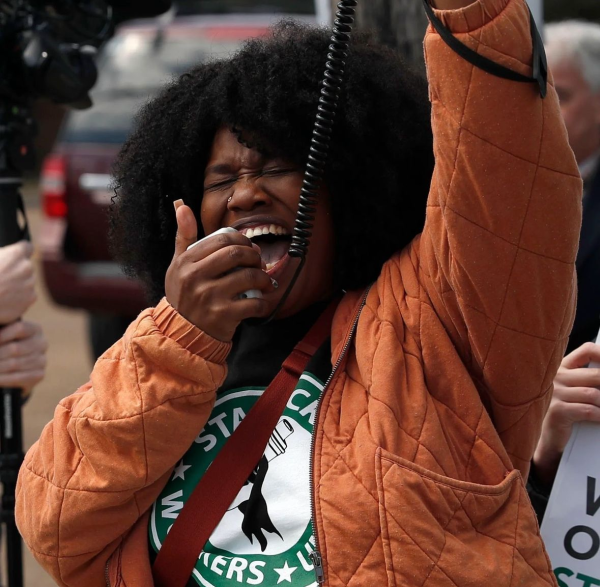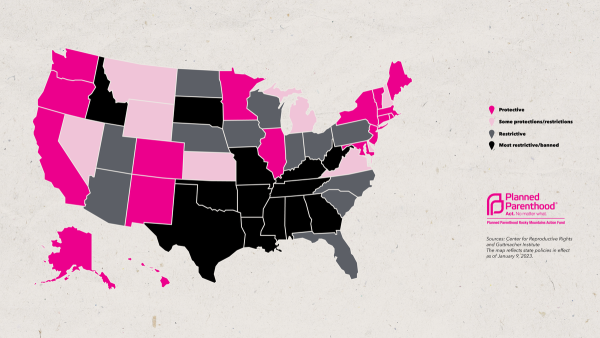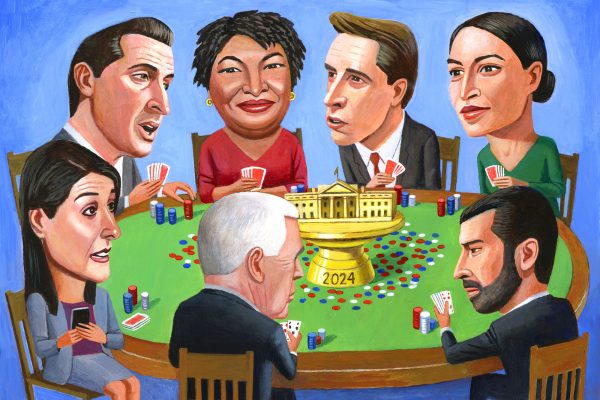New speaker of the house: Kevin McCarthy
February 8, 2023
After 15 rounds of close-calls and relentless bargaining– the longest since 1859–, the Republican representative of California, Kevin McCarthy was elected to be the Speaker of the House in the early hours of Saturday, January 7th. These votes spanned over the course of five days, with a consistent group of 20 Republican Representatives voting for a different Republican candidate, preventing McCarthy from receiving the majority of votes.
McCarthy faced one of the smallest majorities since 1931, with Democrat John Nance Garner in a similar situation. While the 15 ballots pales in comparison to the 133 rounds of votes during the 34th congress (1855-1857), the last time when the House Speaker took multiple votes to elect was in the 68th congress (1923-1925). Such an occurrence, reflects the intense partisanship occurring within congress, bipartisanship which was present in 1855 and 1923. “The number of votes it [the House Speaker election] took represents how divided America is today,” elaborated Suzanne Vaughn, History and Social Science teacher.
First elected to congress in 2006, Kevin McCarthy has since been a consecutive member of the House. After being appointed as Chief Deputy Whip, he was elected to be the House Majority Whip in 2010. From 2014-2019, McCarthy was the House Majority leader, and went on to become the House Minority leader from 2019-2023. While McCarthy was considered a moderate earlier on in his career, he has tiptoed farther away from this line and closer to far right conservatism as the years have progressed.
This “moderate” association led extreme right representatives to work to deter McCarthy from becoming House Speaker, as they perceived McCarthy as misrepresenting the goals of the Republican party.
Such Republicans including Lauren Boebert, Matt Gaetz, and Byron Donalds (the other nominated Republican in the House Speaker race) who, amongst 17 others, utilized the Republicans slim majority as a bargaining chip. By preventing McCarthy from being elected, although momentarily, they managed to get their spotlight to spread their far right ideals, namely how they thought that Kevin McCarthy would be an inadequate and lenient House leader who would do little to advance Washington. Largely, the goals of this supposed protest outside of increased power for the far right were unclear, delegitimizing their efforts and making the actions more of a nuisance to politicians than a bastion of change. “It showed some real division within the republican party.” said Suzanne Vaughn.
McCarthy’s victory, and now present position of House Speaker came at a cost; in order to win over the Republican majority, he presented a series of concessions to far-right ultra-conservatives, which include lawmakers that deny the 2020 election and seek to reinstate former President Trump to power, known as the Freedom Caucus. To secure a narrow win, McCarthy pledged to accommodate a list of demands that benefit his opponents; amongst which included allowing any one lawmaker to “snap-vote” him out, or oust the speaker–, despite his previous comment about how that would be akin to signing the death warrant.
Given the House of Representatives, unlike the Senate, determines what rules will govern the House anew every two-year term, there was a lot of push-and-pull for McCarthy to agree to rules that swayed power from one source to the other. One of which includes McCarthy’s commitment to give the Freedom Caucus at least a third of the seats in the House Rules committee, which organizes the hearings of bills and there’s little the committee cannot do (even passing legislation), so long as the House is willing. This way, the bloc has direct access to the power to reform how bills are amended and brought to the floor, regardless of McCarthy’s personal preference or “inadequacy”.
During McCarthy’s five days of voting, no speaker headed the House; bills were left un-passed, and incoming lawmakers were without committees and unsworn in. McCarthy has seen a time of disrest before he even landed House Speaker, and the divide may continue to fester in the next two years with his authority residing on the stability of a snap, the Freedom Caucus rising in possible influence, and impending decisions involving raising the debt ceiling where concessions have shaped his standing (for better or worse).















